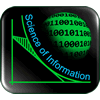
Science of Information for Life Sciences Data
- Student + Postdoc Workshop
June 22-26, 2015
Purdue University, West Lafayette Campus
Last updated Wed Jul 13, 2022 11:55 AM EDT Changelog
Workshop Audience:
Graduate and undergraduate students and postdocs in the life sciences, computer sciences, statistics, mathematics, and electrical engineering or similar fields with an interest in learning data science approaches and tools to apply for analysis and visualization of life sciences data. This workshop took place in 2014 and is being offered again for 2015.
Students and Postdocs from outside Purdue are eligible to apply for reimbursement of airfare and shuttle expenses to attend the full week workshop. Please indicate this during the registration in the last question.
Workshop Purpose:
The spirit of the workshop is to bring together students from multiple fields to lower barriers for understanding the language and approaches in both life sciences and data science. Students will gain an understanding of the approaches, methods, and tools of another field of study, while having the opportunity to gain experience working in small interdisciplinary groups focused on cutting edge life sciences research. Students will be encouraged to work toward potential solutions for data analysis and visualization with potential funding to continue team research following the workshop.
Workshop Preparation:
Before June 8, please complete this brief survey: open survey This survey asks about your research interests and your expectations. The survey will request you to upload 1-2 slides, however if you do not have these available you can send us the slides at a later time. The survey responses will be stored on a secure website and shared with the other workshop participants as part of an effort to maximize the workshop's benefit for everyone.
Examples of Life Science Data Problems
Below are examples of life science data problems to be approached by students during the workshop. View results of the student research team that formed as a result of last years project.- High throughput analysis of the information content of proteins
A precise temporal-spatial organization of proteins within cells is required for basic cellular activities (e.g., proliferation) and for complex multicellular processes (e.g., embryo development). Importantly, it is well-known that the intracellular localization of proteins is specified by information encoded in the order in which their constituents are linked; i.e., in their amino acid sequence.
However, current methods for the analysis of protein cargo information often rely on manual inspection of amino acid sequences and on the use of scattered algorithms and resources. One obvious limitation of this “manual” approach is the inability to perform high throughput analysis. Although complete collections of protein sequences from entire organisms exist, we lack the tools to analyze databases looking for cargoes carrying specific sorting information.
This is a major deficiency as reading and interpreting the sorting sequence code of proteins would have a profound impact on many areas of the life sciences. For example, it would shed light onto the molecular mechanisms of several genetic diseases and would eventually allow us to control the fate of proteins in cells. Students will be challenged to develop an approach for the analysis of protein sequence databases for identification of known and novel sorting signals. Special emphasis will be given to the identification of potential protein targets in genetic diseases, neurodegenerative disorders, and in information theory approaches aimed to fully crack the protein sequence code.
- Quantitative Modeling for the effect of Anti-tumor Agents in vivo
Very often new anti-cancer drugs successfully tested in vitro (on cells grown on petri dishes) fail to efficiently perform in vivo (e.g., in animal models). Although multiple reasons may account for these failures, the lack of proper models guiding the transition between these approaches remains a main contributing cause to unsuccessful trials.
This challenge encompasses the development of mathematical/statistical models of anti-cancer drug action that will explicitly take into consideration tumor size, drug concentration and tumor cell heterogeneity. Students will be provided with real data from current investigations on a novel agent against bladder cancer.
- Monitoring and Quantifying Abnormal Cell Behavior
A key to the development of novel therapeutics and the investigation of disease mechanisms is our ability to quantitatively perceive cell abnormalities. For example, when investigators try different drug prototypes to counteract the manifestations of a disease, they need to score them from the best to the worse. This information is critical to allow scientists to choose what prototype features to adopt and which ones to avoid during the development of a new generation of therapeutic agents. A similar rationale applies to investigations about the effect of different mutations in certain genes: what mutations lead to the more severe abnormalities?
The students will be challenged to develop methods to describe and quantify abnormalities in organelle and cell morphology or cell dynamics, in both patient cells and model organism cells.
Resources
Data Science Tools and Code:
Event Photos
Research Team Project Presentations
Links for presentations currently only available to workshop participants.
- Maurina Aranda & Rebecca Barter - "Analysis of Spatial Distribution of LRP12"
- Frank DeVilbiss, Mainak Chowdhury & Felix Sanchez - "EvoTheraputics"
- Wen-Chieh Hsieh, Dr. Jia Tao & Leqi Liu - "How Ubiquitination Affect Epsin Specific Cargo Internalization?"
- Eric Nesser & Hanzhong Liu - "Identifying Gene-Gene Interaction in Cancer"
- Swetha Ramadesikan, Prashant Thapa & Ilan Shomorony - "Morphological Analysis of Golgi Apparatus in Lowe Syndrome Cells"
- McKeith Pearson II & Mithun Yerra - "Progress of Quantifying Cytokinesis Defect in Saccharomyces Cerevisiae"
Professional Development Presentation
Contacts:
Center contact: Brent T. Ladd, Education Director
Agenda:
Off campus students should plan to arrive at Purdue by Sunday evening, June 21. The workshop will conclude by early afternoon on Friday, June 26.
Lodging and Meals:
Lodging will be provided and paid for by the Center for all non-Purdue students. Students from outside Purdue requiring lodging will be staying at First Street Towers. The office is open 24 hours so students can check in whenever they arrive. Phone for First Street Towers is 765-494-0200 for assistance If you take an airport shuttle to Purdue, a shuttle pickup/drop-off spot is often at the Purdue West shopping area next to Follett's along McCutcheon Drive. It is then only 1 block east to First Street Towers along State Street (see map below)
Off campus students should plan to arrive at Purdue by Sunday evening, June 21. The workshop will conclude by early afternoon on Friday, June 26.
Student and Postdocs from outside Purdue are eligible to apply for reimbursement of airfare and shuttle expenses to attend the full week workshop. Please indicate this during the registration in the last question.
Meals will be provided for everyone for breakfast, lunch and dinner during the workshop. Students staying in the dorm will receive dining cards at check-in. Purdue students will receive dining cards on the 1st day of the workshop. Your dining/boiler express card can be used at residential dining halls Hillenbrand, and Ford (breakfast 6:30-8:30am; dinner: 5-6:30pm ) as well as several cafes, markets, and restaurants at campus locations. You can view hours of operations for these non-residential locations here: http://www.dining.purdue.edu/CampusDining/campusdininghours.html
Travel to/from Purdue
Participants traveling from outside Purdue to the workshop will be contacting by the organizers with reimbursement form and instructions.
Workshop Location:
Meeting location: Felix Haas Hall, Room 111 250 N. University Street, West Lafayette, IN, 47907
Construction on campus has resulted in several streets and sidewalks being closed. Note that 3rd street two blocks west of Haas Hall is currently closed.
Campus locations for breakfast & dinner:- Hillenbrand and Ford Dining Halls, open for breakfast 6:30 am - 8:30 am and open for dinner 5:00 - 6:30 pm.
- Starbucks, open from 7:30 - 5:30 pm, located in the Purdue Union
- Pappy’s Sweet Shop, open until 8 pm, located in the Purdue Union
- Villa Pizza, open until 7:00 pm, located in the Purdue Union.
Connecting to Purdue's Wireless Offerings
Post Workshop Activities
Post-workshop - Interdisciplinary Team Grants:
Students will have opportunity to submit proposals to the Center for funding to continue team collaborations with intention of producing co-presentations and paper at future conferences. View results of the student research team that formed as a result of last years project.
Sponsors:
Funded under grant agreement NSF DUE1140591 Science of Information: Bringing Many Disciplines Together (Deepak Kumar and Mark Ward, PIs), and CCF-0939370 Center for Science of Information from the National Science Foundation and with support from the Department of Computer Science, Purdue University.




